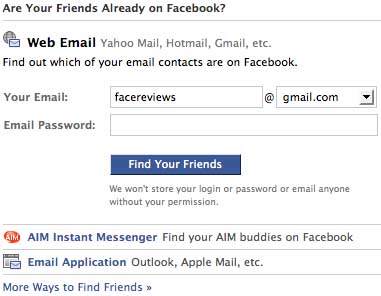A UK charity recently did a survey
to look at how people deal with idea of death and digital music, photography and online bank accounts. Their research found that although 80% of those surveyed have such things, fewer than 10% have given any thought about what should happen to those assets when they die. More than half also said their computers contained important domestic and personal information which could not be accessed by family members.
This issue has been gaining importance as our online life becomes an increasing portion of our activity and consumption. People used to keep photos in albums – now they’re scattered among devices, memory cards and online services. Personal diaries are now protected with a password instead of a physical lock – and might even be stored on Blogger or LiveJournal or another online service rather than on a hard drive. Family financial information or even personal recipes might be stored in Google Docs. Most of the services we use on a regular basis have little-to-no provisions in place for a family member or an executor to transfer account information. Few companies and even fewer users are thinking about end of life issues when it comes to their online lives.
In some cases it takes legal action to gain access to an email account because of the privacy issues involved with messages to and from others who are still living. After the case of Lance Corporal Justin Ellsworth in 2004, the US Army began counseling deploying soldiers on this issue,
Legal Assistance attorneys can counsel deploying soldiers about the merits and consequences of giving a letter that contains the user ID and password to their e-mail to someone they trust. The merits include comforting their loved ones by enabling them to piece together his or her life “down range.” The consequences include that access is not selective and the soldier may want to protect his or her privacy even after their death. In the alternative, LA attorneys may advise deploying soldiers to draft a letter specifically telling their loved ones to respect his or her privacy and not attempt to access his or her e-mail account posthumously. LA attorneys providing this counseling should also instruct deploying soldiers to keep the contents of his or her letter secret from the person intended to deliver it to the soldier’s loved ones.
Following up on the US Army’s approach, companies like Legacy Locker are providing people with the ability to create an archive of userids and passwords as part of a “digital will.” Going beyond the sentimental value of photographs and correspondence, 80%
of those responding to the UK charity survey thought their collections of virtual goods (music, iPhone apps and other virtual goods) were financially valuable. Yet only 9% had considered including them among assets to be distributed after their death. Companies like Confidant are providing users with the ability to create a single online repository of important information and designate specific individuals who have access to some or all of the information.
As demonstrated by the UK charity’s study, the digital assets we acquire during life have value that is not just sentimental. The US IRS Taxpayer Advocate recognized this in 2008 in her annual report to Congress. The relevant portions of the report were extracted and posted here.
So when you die, your heirs would theoretically have to pay an estate tax on all of the digital assets you collected in your years of virtual asset collecting and building. As long as it has a real-world value, it can be taxed for that real-world amount just like a piece of art or a valuable stamp collection.
Any consumer who collects digital assets – whether through playing games ranging from Kingdom of Loathing to World of Warcraft,
participating in a virtual world, simply purchasing music or other digital goods, or just saving important pictures and files – should consider what should and will happen to those files when the consumer dies. Consumers should consider whether the terms of use for relevant services permits those assets to be transferred to a third party or whether the service has policies and procedures for dealing with the death of a user. In addition, the heirs of consumers with significant, valuable collections of digital assets may need to deal with estate tax issues related to the value of those digital assets. Similarly, providers of online services need to consider how they will deal with the death of users, whether they will permit accounts and/or specific assets to be transferred to third parties and what levels of evidence they will require to verify the death. In many cases, where a service provides a virtual currency, laws may regulate the manner in which such online currency accounts must be maintained and/or transferred.
Providers of online role-playing games and other virtual worlds may need to create systems to notify other users of the death of a member and, perhaps,
even hold online memorial services.
 Internet & Social Media Law Blog
Internet & Social Media Law Blog




